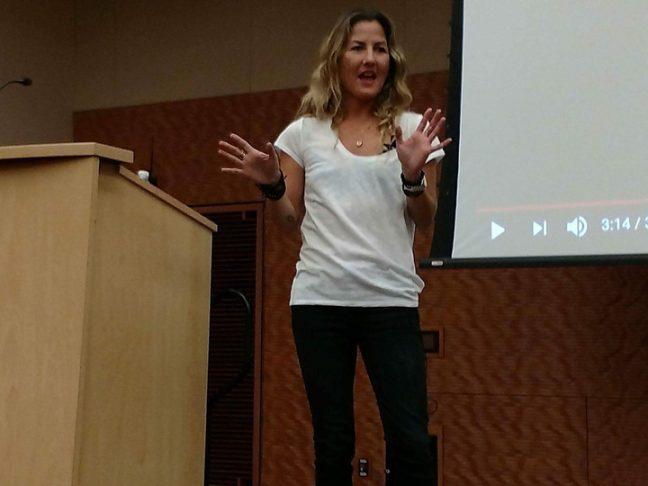As part of the University of Wisconsin’s International Education Week, entrepreneur Ariela Suster spoke Monday about her experiences working with at-risk youth in El Salvador.
Suster, who grew up in El Salvador during the country’s nearly 14-year-long civil war, was surrounded by violence in her childhood. In her youth, Suster’s own brother was kidnapped, an event which prompted her to leave her home country.
Her brother has since been released, but she said the violence she was exposed to as a child left an impression on her. In part, it’s what inspired her to found a jewelry line in 2011.
The company, called Sequence, sells jewelry produced by 40 at-risk young men in a Salvadoran community near Suster’s hometown. Through her work, Suster hoped to make a change.
“I wanted to break the cycle of violence,” Suster said.
Suster’s journey wasn’t easy, she said. It began when she returned to El Salvador after college. The Salvadoran Civil War had ended years prior to her return, but Suster now encountered violence from the deadly gangs MS-13 and MS-18.
Seeing the devastation that gang violence wrought on her community, Suster repeatedly found herself asking herself why young men were joining gangs.
With the help of members of the community, Suster launched Sequence out of a house in Tepecoyo, a neighborhood that had been hit hard by El Salvador’s gang violence.
She recruited young men within the neighborhood, not only to remove them from the cycle of violence that disrupted their lives, but to give them an outlet to learn and develop marketable skills in design extending far beyond the scope of jewelry.
Suster said one of the young men she worked with couldn’t read or write. Now, he’s working with graphic design programs.
Suster’s product has been sold everywhere from the U.S. to Japan, something she said exposed her to new situations.
In one of these situations, Suster spoke in a prison where the guards wore masks and gloves to protect their identity. At first, Suster, who said she had no voice for public speaking, couldn’t even look at the inmates who surrounded her. When she finally did begin to speak, she said her anxiety “melted away.”
“I looked up, and they looked exactly like the guys I worked with,” said Suster.
It was in that moment when she realized she wanted to keep the young men she worked with from ending up in a place like that prison.
No one has to go through traumatizing experiences to make a difference, Suster said. She urged audience members to find their own ways to make a difference.
She made the decision to return to El Salvador because she wasn’t feeling fulfilled in her post-college career.
Moving back to El Salvador, she said, allowed her to “find her purpose.”
It’s never too early or too late to start to make a difference, Suster said.
A full schedule of International Education Week events can be found here.


